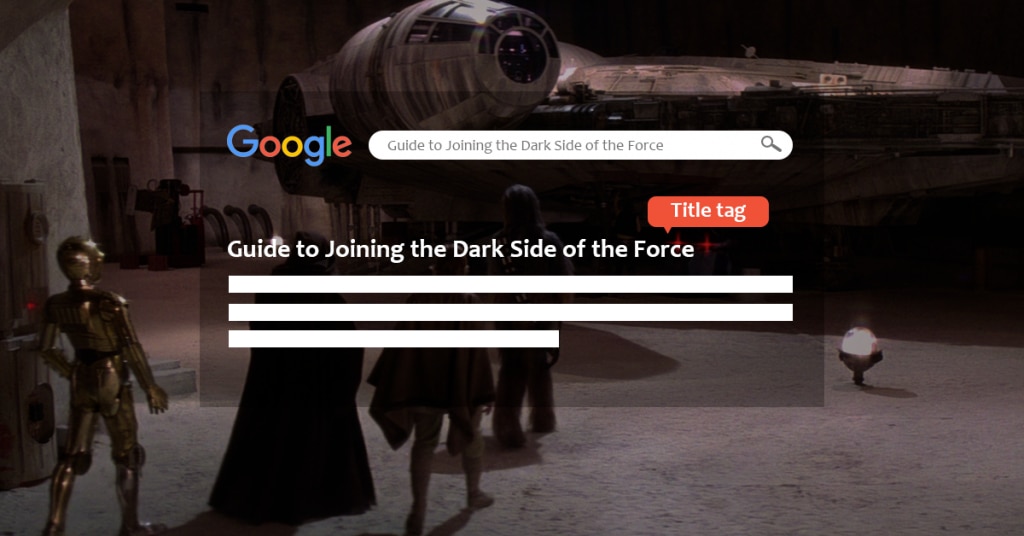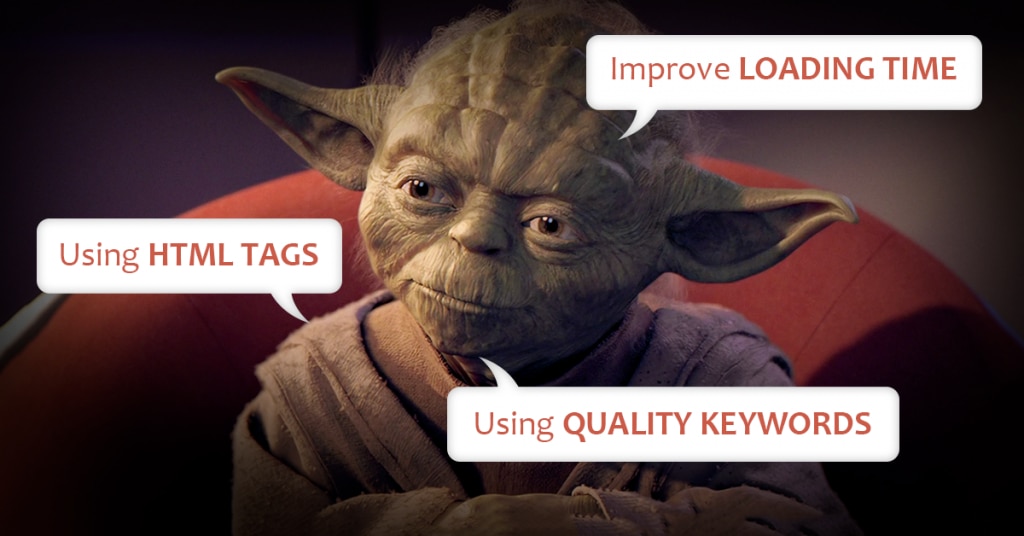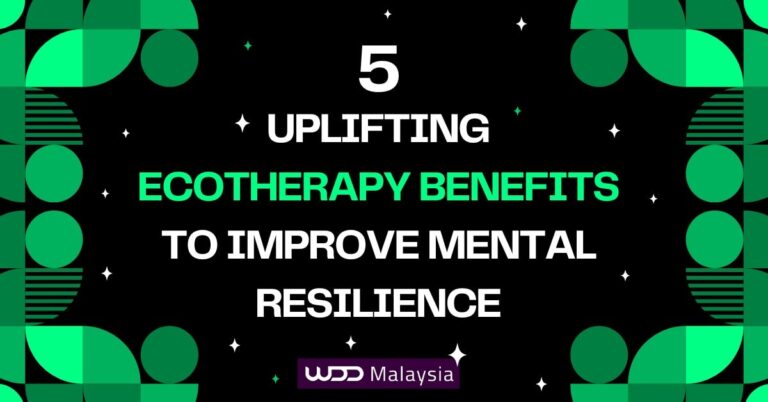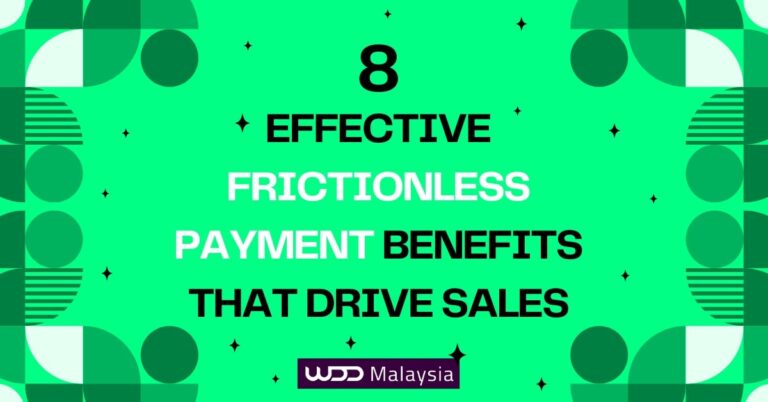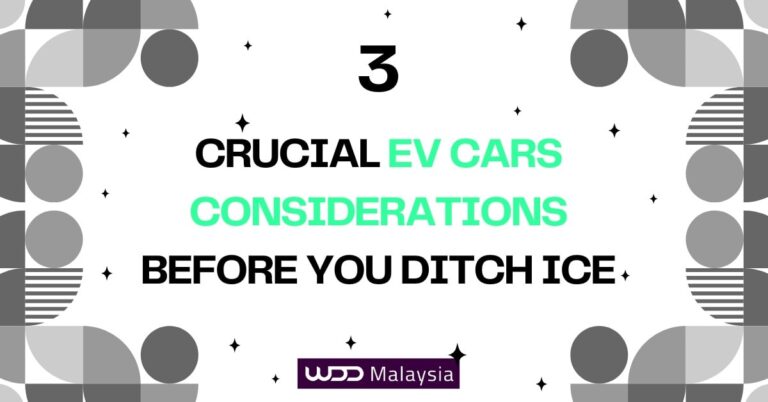The world of SEO can be a confusing place just like how Luke Skywalker underwent his training at Dagobah, but does it really matter when it comes to building a website and driving traffic to it?
The simple answer is yes – without SEO, your website stands to lose a very significant amount of traffic, if it ever gained it in the first place.
There are two main types of SEO — on-page and off-page and there is a clear difference between the two. If you compare it like both sides of the force.
On-page SEO refers to factors that occur on your website that are within your full control — you might think of them like the things you do to attract traffic to the website.
In contrast, off-page SEO is the things that happen away from your website, or off it and might include back-links from other pages, social media advertising and your website’s domain authority, amongst others.
So, Why Is On-Page SEO So Important?
SEO stands for search engine optimisation, and as such, we understand on-page SEO to be an important factor in how your website appears to search engines like Google.
Websites that have a strong on-page SEO strategy will be more likely to blend in easily to search engines which will allow them to understand the context and gist of your website purpose.
To put this simply, Google and its array of search engine Stormtroopers will be able to determine whether your content is relevant to the search that has been triggered.
Search engines are constantly adapting and becoming smarter, for this reason, Google is now easily able to present searchers with more accurate results and even understand what the search request requires — is the person looking for information, to buy something or to find a physical location?
No more guessing what R2-D2 is trying to say anymore!
As you implement your on-page SEO, search engines will direct relevant traffic to your website which will not only increases your exposure but will result in greater authority and conversions — and that’s great news for your brand!
There are a variety of on-page SEO techniques that are important and we are going to explore some of these in a little more detail.
Quality Of Content
We mentioned that search engines are becoming smarter but did you know that Google has developed a strategy known as EAT which rewards websites that deliver quality content over those that produce irrelevant spam?
EAT stands for Expertise, Authoritativeness and Trustworthiness and is used by Google raters when looking at the quality of content — in short, the better your content, the higher up the search results you will appear.
What’s more, even without Google’s rankings, if you are producing low-quality content, this will drive any organic traffic you receive away as quickly as Zam runs away from Anakin & Obi-Wan, so it’s worth investing the time to create decent quality content.
Keyword Selection
In days gone by, keyword stuffing was a popular SEO technique but it is important to remember that this is no longer as effective as it once was and search engines will look for quality over quantity where keywords are concerned.
Essentially, you need to choose your keywords wisely and practice your Jedi mind trick.
In modern SEO, website developers are opting for long-tail keywords, these are simply longer, more specific search terms and it is worth looking into what your audience may be searching for and start creating contents surrounding this idea.
HTML
When we talk about HTML we are referring to titles, tags, permalinks, descriptions and including relevant HTML tags is incredibly important as search engine scanners will use this to determine what your web content is really about.
It’s common knowledge in the universe of SEO that without HTML, you are unlikely to ever engage with a relevant audience.
This will be the key to your unlocking of the Millenium Falcon.
One of the most important HTML tags is the title tag, this gives both search engines and potential readers a clear idea as to what your article is about and wording it correctly is vital.
For example, if you have written an article called ‘Guide to Joining the Dark Side of the Force’ you might use the title tag “guide to joining the dark side of the force” which shows what the content is and when it is relevant.
Your meta descriptions should also feature key HTML tags as a way of further increasing the traffic to your website. You must be sure to use your main keyword but you can also include your location, especially if you are offering local services.
Mobile Friendliness
We are not as advanced as Planet Coruscant yet, whereby it mostly use hologram device.
However, more than 50% of web traffic comes from a mobile device, quite simple math, if your website is not optimised for mobile users — you could potentially lose half of your traffic!
There are several things that you can do to make your website mobile-friendly such as improving its loading time — nobody has the time to be waiting around for pages to load when on the go.
Implementing responsive design which will result in a better user experience and being careful of how you use pop-ups since these can be frustrating to get rid especially on mobile devices.
Additionally, there is the option to create mobile-specific content and even have a dedicated mobile URL.
This gives you the opportunity to create two parallel websites, each with specific elements for either mobile or desktop users.
Page Speed
The loading speed of your page is important for both mobile and desktop visitors with pages that load more slowly, frequently bouncing users — if they haven’t been driven away already.
Google has a page speed insights tool which allows you to see your current loading time and will also give you feedback on what you can do to improve this time if needed.
For many brands, it can be a difficult thing to implement but there are plenty of services out there who can provide the expertise needed to tackle this issue.
Your page speed should be like X-Wing trying to escape the Imperial Star Destroyer.
Secure Website SSL
A secure website SSL certificate gives your audience the confidence that your website is fully secure — this is crucial if you are taking sensitive information such as credit card details.
A website with an SSL certificate will display a little lock icon in the address bar — you’ve likely seen this many times without realising.
What’s more, SSL certificates are now affordable (as low as $9.99) so there really is no excuse not to be using one if you want your page to rank higher in search results.
It goes without saying that secure sites are going to have preference over those that do not carry and SSL certificate so this should be one of your priorities when developing an on-page SEO strategy.
Hire your Imperial royal guard now or risk being vulnerable.
Final Thoughts – Advice from Master Yoda himself
This is just merely an introduction to SEO, and it only counts as if the 2nd day of Luke Skywalker training at Dagobah. Nevertheless, you should understand the outline of these first before putting yourself gravely in the real world.
On-page SEO is any SEO techniques that are performed on your website as opposed to those that are done elsewhere and there are many actions you can take to ensure that you get consistent, relevant and quality traffic to your website.
This might include using HTML tags so that search engines are more easily able to read your website, improving the loading time of the page and using quality long-tail keywords, amongst other things.
If your on-page SEO strategy is not properly implemented you are running the risk of losing traffic or never gaining it from the get-go as well as appearing so low in search results that your website will become lost in a galaxy of its competition.
What’s more, without good on-page SEO, your website will quickly lose authority.
According to one search engine expert, once a website starts going in the wrong direction, it can be very difficult to get it back on track, so it’s worth sticking with your SEO strategy and reviewing it regularly.




